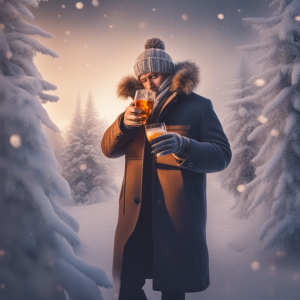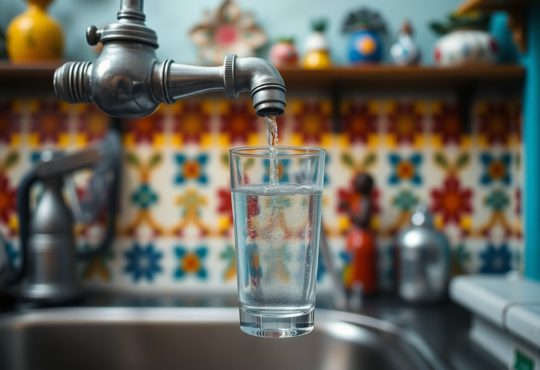
Alcohol Consumption Risks During Extreme Cold Conditions
Explore the Real Risks of Alcohol Consumption in Freezing Weather Conditions
As we navigate through the challenging winter months, especially in extremely cold climates, our instinctive desire for warmth can sometimes lead us to the hazardous practice of consuming alcohol. It is essential to recognize and understand the profound risks associated with drinking alcohol under such conditions. This article aims to shed light on the serious dangers linked to alcohol consumption in icy environments, emphasizing why this behavior is not only risky but also ineffective for maintaining body warmth. By enhancing your awareness of these dangers, you can make informed choices that prioritize your health and safety during the perilous winter season.
Before delving into the specific dangers, it’s critical to dispel the common misconception that alcohol serves as a warming agent. Upon consumption, alcohol triggers dilation of blood vessels near the skin’s surface, creating a misleading sensation of warmth. Although this feeling may seem reassuring, it does not address the vital necessity of maintaining a stable internal body temperature. In reality, the effects of alcohol can be harmful, impairing your capacity to endure cold temperatures and significantly increasing the risk of severe conditions like hypothermia and other serious health complications.
 One of the key dangers of consuming alcohol in frigid conditions is the increased risk of dehydration. Alcohol is known to act as a diuretic, which promotes urine production and leads to significant fluid loss. Moreover, the cold air typical of winter is drier, accelerating moisture loss from our bodies. When these two factors combine, they can lead to dangerously low hydration levels, which are critical for overall health and survival. Dehydration not only negatively impacts physical performance but also compromises cognitive functions, making it challenging to think clearly and make rational decisions in critical situations.
One of the key dangers of consuming alcohol in frigid conditions is the increased risk of dehydration. Alcohol is known to act as a diuretic, which promotes urine production and leads to significant fluid loss. Moreover, the cold air typical of winter is drier, accelerating moisture loss from our bodies. When these two factors combine, they can lead to dangerously low hydration levels, which are critical for overall health and survival. Dehydration not only negatively impacts physical performance but also compromises cognitive functions, making it challenging to think clearly and make rational decisions in critical situations.
Recognize the Impact of Alcohol on Judgment and Awareness During Cold Weather
Another significant consequence of alcohol consumption is its ability to impair cognitive function and decision-making skills. In survival situations, the capacity to make clear and rational decisions is paramount for ensuring personal safety. Alcohol consumption clouds judgment, making it increasingly difficult to respond appropriately to various hazards. This decline in reasoning ability can lead to accidents and poor choices, which can be particularly devastating in extreme cold. Maintaining awareness of one’s surroundings is crucial; however, alcohol undermines this necessity, increasing the likelihood of mistakes that could threaten personal safety.
Furthermore, alcohol disrupts the body’s natural mechanisms for temperature regulation. When consumed, alcohol causes the blood vessels in the skin to expand, resulting in increased heat loss. Initially, this may create a temporary sensation of warmth, but over time, it accelerates the loss of core body heat, which is vital for survival. This creates a dangerous cycle where the fleeting warmth leads to a rapid decrease in core temperature, significantly raising the risk of life-threatening conditions like hypothermia. It is essential to understand that while alcohol may seem to provide a quick fix against the cold, it ultimately increases vulnerability to severe cold-related health risks.
Recognize the Dangerous Connection Between Alcohol and Hypothermia Risk
When discussing the serious threat of hypothermia, it is important to understand how alcohol consumption can obscure the early warning signs of this potentially life-threatening condition. Hypothermia occurs when the body’s core temperature drops below the normal range, typically below 95 degrees Fahrenheit (35 degrees Celsius). Symptoms include shivering, confusion, fatigue, and impaired coordination. However, alcohol can suppress the body’s natural responses, making it increasingly difficult to detect these critical indicators. By the time the symptoms of hypothermia become noticeable, it may be too late to avert serious injury or even fatal consequences.
In winter survival scenarios, there are numerous safer and more effective alternatives to alcohol for maintaining warmth. Here are several strategies that can significantly enhance your ability to stay warm and safe:
1. Layer Your Clothing for Maximum Warmth: Wearing multiple layers of clothing is crucial for effectively trapping warm air. Start with thermal base layers, add insulating mid-layers, and complete your outfit with a windproof and waterproof outer layer to create a protective barrier against the cold.
2. Keep Your Clothing and Footwear Dry: Moisture leads to rapid heat loss, so it is imperative to keep your clothing and footwear dry at all times. Choose waterproof materials and change into dry garments whenever necessary to help maintain warmth and comfort.
3. Insulate Yourself from the Cold Ground: Utilizing sleeping mats or insulation pads can significantly reduce heat loss, especially during rest periods. This practice is essential for conserving body heat during extended stays in cold environments.
4. Opt for Warm, Non-Alcoholic Beverages: Instead of alcohol, consider enjoying hot drinks like tea, coffee, or hot chocolate. These beverages not only provide warmth but also come without the negative side effects associated with alcohol consumption.
5. Construct or Seek Shelter for Protection: Actively looking for or building a shelter can significantly reduce your exposure to harsh winds and freezing temperatures. A well-constructed shelter is essential for retaining body heat, greatly enhancing your chances of staying warm and safe.
6. Fuel Your Body with High-Calorie Foods: Consuming nutrient-dense foods that are high in calories can provide your body with the energy needed to generate heat. Foods such as nuts and fatty fish are excellent sources of healthy fats that can be especially beneficial in cold weather.
Understanding the dangers associated with alcohol consumption in freezing temperatures is crucial for anyone involved in winter survival situations. Despite the fleeting sensation of warmth, alcohol can lead to dehydration, impaired judgment, disrupted temperature regulation, and can mask the symptoms of hypothermia. By steering clear of alcohol and implementing safe, effective strategies, we can significantly improve our chances of surviving and thriving in harsh winter environments. Stay vigilant, prepare thoroughly, and prioritize your safety above all else.
The post Hazards of Alcohol Consumption in Extreme Cold Conditions appeared first on Survival Bite.
The Article Alcohol Consumption Hazards in Extreme Cold Conditions Was Found On https://limitsofstrategy.com
The Article Alcohol Consumption Risks in Severe Cold Weather First Appeared ON
: https://ad4sc.com












I appreciate the way you addressed a topic that often gets overlooked in discussions about winter safety. The misconception that alcohol can warm us up is deeply ingrained in our culture, often portrayed in movies and advertisements as a cozy winter staple. However, understanding the real physiological responses to alcohol in cold weather is crucial for safeguarding our health.
The discussion surrounding alcohol consumption, especially in adverse weather conditions like extreme cold, raises important questions about our inherent misconceptions and the biological effects of substances on our bodies. Your article effectively highlights a critical point that is often overlooked: the idea that alcohol can function as a warming agent is indeed a dangerous myth.